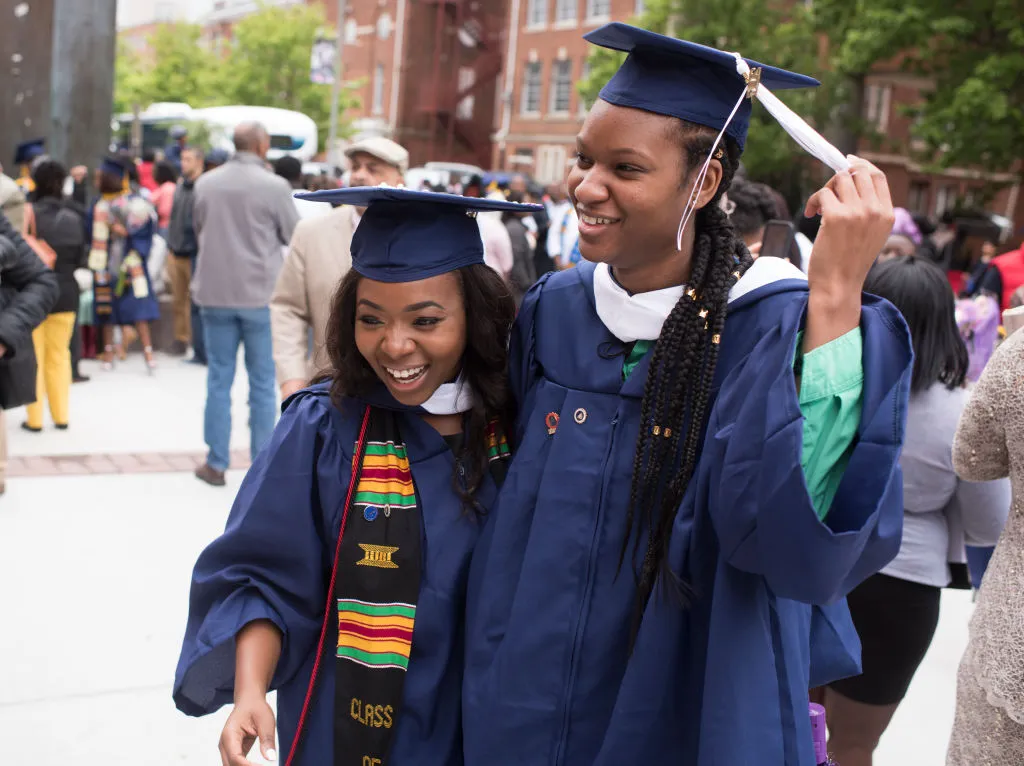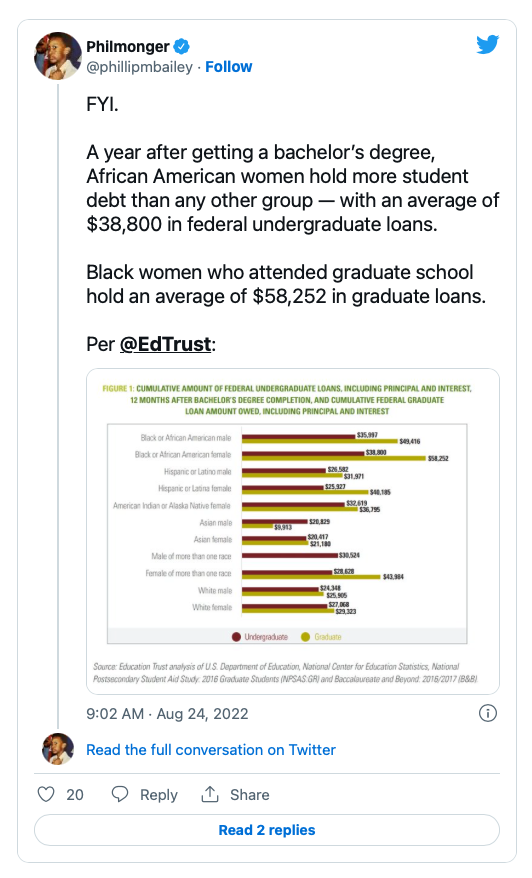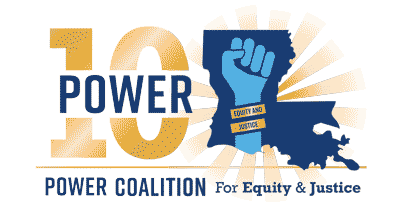
Black women are uniquely saddled with student loan debt.
by Ashley Shelton in NewsOne
President Joe Biden recently announced plans to cancel up to $10,000 in federal student loan debt per borrower and up to $20,000 for Pell Grant recipients. The plan applies to most individuals earning less than $125,000 per year or couples earning less than $250,000 per year.
As a Black woman, Black mother, organizer and convenor in the south, I celebrate this moment, while also committing to continued advocacy to address the student loan crisis. In fact, I must.
Black women are uniquely saddled with student loan debt. Black women experience intersecting oppressions of gender and race which means we are particularly impacted by student loan debt. On the one hand, we are encouraged to acquire as much education as possible to ensure an upward trajectory. We are told that with more experience, or one more degree, we’ll be more marketable and positioned to command a higher salary. But when we enter the workforce, we struggle to be paid what we’re worth. We can also face blowback when we advocate for what we need and deserve.
Consequently, Black women are more likely than other demographics to pursue higher education, but less likely than others to have the means to pay for it out of pocket; hence we tend to take on more debt. Because as heads of many households, we often have responsibility to care for others, even as we do our best to care for ourselves. Education Trust explained it this way, “Because Black women exist at the intersection of two marginalized identities and experience sexism and racism at the same time, they make less money and often need to borrow more to cover the cost of attendance, and struggle significantly with repayment.”
To put things in perspective, note that nearly two thirds of the student debt in America is held by women. Considering the gender and racial pay gap, Black women are among those who are more negatively affected. It is critical that the Biden administration continues working to see and appreciate the struggle of Black women. And it must do something about it. The good news is that the administration can make change in this area.

For instance, the administration’s plan to offer student debt relief shows us what the government can do when they give resources directly to the taxpayers and focus on the needs of those closest to the problem. The $24 billion investment represents just 1.5% of the projected $1.7 trillion deficit reduction projected for the current fiscal year which means a small portion of funds are being used to provide relief to people who really need it. This should not be viewed as a one and done solution; President Biden and Congress must do more to level the playing field for Black women, and Black people in general.
While President Biden’s initiative will forgive up to $10,000 in student loan debt, the average Black woman has $52,000 in student loan debt. Additionally, persons with private student loan debt are not included in this plan at all. And those who have defaulted on student loans payments are not eligible for relief under Biden’s plan.
From Education Trust’s research, we know that many Black women struggle with repayment. There must be longer-term solutions to provide relief to those who need it most, whether they hold private or federal debt.
And we should not fear the chorus of those angry over student loan forgiveness. For people of faith, it is difficult to appreciate this moment devoid of biblical texts. One of the first lessons we learn from the bible is the importance of and the power of forgiveness. What’s more, persons who accepted PPP loans but decry student loan forgiveness remind me of the man in Matthew 18:23-35 who owed the king ten thousand bags of gold. Unable to pay, the man pleaded for patience and mercy, and ultimately received it. The king canceled the debt and released the debtor. For his part, the man himself was owed a smaller debt by someone in his employ. When that individual expressed an inability to pay, the man who had his own debt forgiven grabbed the other man, choked him, and demanded he pay his debt.
Although the debtor was unable to pay, and the man had his own debts forgiven, he was unwilling to show mercy. Isn’t that what we’re seeing now? In 2020, many conservatives and business owners begged for relief. They received it, and now complain that persons with far fewer resources are receiving some semblance of help and hope. How hypocritical.
The truth is that the steps President Biden has taken amount to a small portion of the national budget and have no adverse bearing on the nation. President Biden could and should do more to support people most harmed by student loan debt; and that includes Black women. This is a conversation we must have and have continually.
Ashley K. Shelton is the founder and president of the Power Coalition for Equity & Justice, and a member of the Black Southern Women’s Collaborative.
Click here to view this article on NewsOne
Image: Students graduate at Howard University Commencement Ceremony in Washington, D.C. on May 13, 2017. | Source: The Washington Post / Getty

